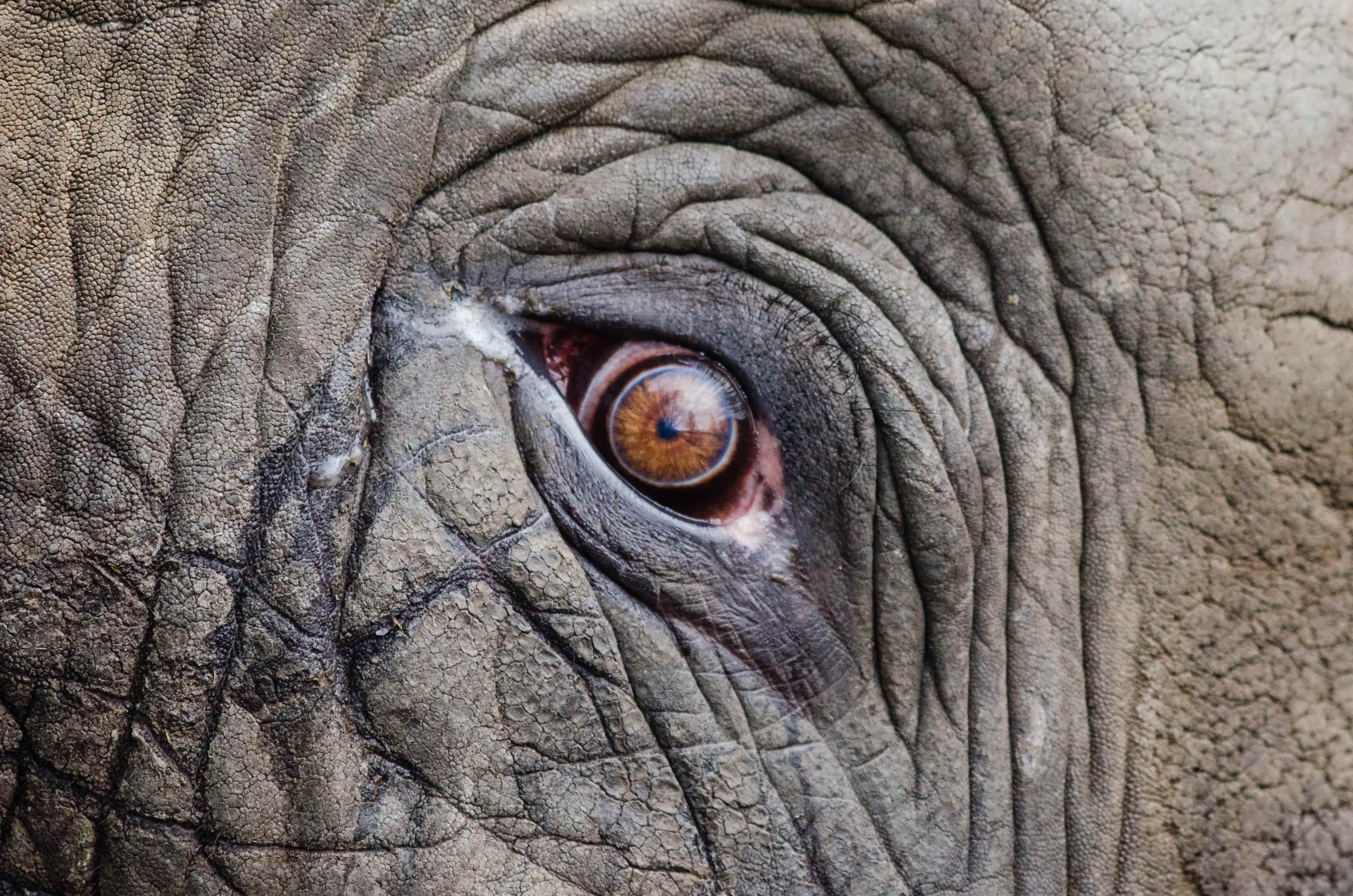You can’t really blame the scores of tourists lined-up to ride elephants up the hill to the beautiful Amer Fort just outside Jaipur, India. Climbing on top of a painted elephant to carry you the long hike up to the ancient fort appears incredibly appealing, provided you don’t know any better. After all, elephants are extraordinary animals and it’s natural to want to experience them up close.
However, responsible travellers will look more closely and begin to understand the years – even decades – of pain, suffering, and cruelty that goes into producing that one-off tourist experience.
The TreadRight Foundation recently had the opportunity to explore India and dig deeper into the harsh reality of elephants being forced to haul hordes of tourists up and down the stone path day in and day out.
On an eye-opening trip led by TreadRight Ambassador Céline Cousteau, a group of influential storytellers set out to explore incredible India, experiencing the rich heritage of India’s bustling cities, renowned temples, crowded bazaars, and culinary splendours, while also gaining a greater appreciation for why it’s vital that travellers #RefuseToRide.
Education is an integral element in TreadRight’s mission to make travel matter and there’s no better example of the need to educate than the inspiring work being carried out by our Wildlife project partners at Wildlife SOS – India.
The organization was first launched in 1995 by a small group of individuals inspired to start a movement and make lasting change to protect and conserve India’s natural heritage, forest and wildlife wealth. Today, Wildlife SOS has evolved to actively work towards protecting Indian wildlife, conserving habitat, studying biodiversity, conducting research, and creating alternative and sustainable livelihoods for erstwhile poacher communities or those communities that depend on wildlife for sustenance.
Principal among their activities is their work with injured and sick elephants that are forced to work in slums and crowded cities. Their aim is to reach out and help the elephants living in urban environments that are wounded, malnourished, and dehydrated or those being used illegally and commercially under deprived conditions. Wildlife SOS currently offers medical services to these needy elephants and train their handlers, ‘the mahouts,’ on humane treatment and management of these gentle giants. They also act to remove abused elephants from the streets and to help them to retire in their elephant sanctuaries.
But it will take more than Wildlife SOS’s heartening efforts to bring an end to the abuse and cruelty faced by elephants in human control across India. To create lasting change and better lives for all Indian elephants the travelling public needs to be made aware of what their tourist dollars are supporting when they decide to ride.
In visiting elephant worksites like Amer Fort and then contrasting that with the awe-inspiring experience TreadRight’s storytellers team had in interacting with the saved elephants at Wildlife SOS’s Elephant Conservation and Care Center just outside of Agra, it immediately becomes painfully apparent how disparate the two experiences are for both elephants and people.
“Elephants are one of our planet’s most intelligent animals, with studies indicating they may even have a higher emotional intelligence than humans,” says TreadRight Program Manager Zach Vanasse. “That intelligence was palpable when we visited with them in cruel work settings. It’s abundantly clear that they are in distress and suffering, or worse, completely unexpressive as they’ve been broken for so long. The same goes for their tangible calm and joy we witnessed in the beautiful elephants living out the rest of their lives in the serene setting at the Wildlife SOS Elephant Conservation and Care Center. The experiences are simply worlds apart, with the latter clearly being the far more enjoyable and enriching for everyone.”
Visiting the Elephant Conservation and Care Center, the TreadRight storytellers team was able to learn more about the organization’s essential #RefuseToRide campaign, which outlines why it’s so important that people who truly love elephants never ride one.
What Can We Do?
- Stay informed. Don’t visit places that offer elephant rides. Inform your travel agent and any local guides about your preference.
- Share your opinion. Be vocal and object strongly. Post on social media. Tell your friends, family, and colleagues why it’s important to avoid riding elephants. We know most people will avoid doing it once they know the issues. Spreading awareness is the key to reducing exploitation and abuse of animals.
- Write to travel websites, magazines, guidebooks, tour operators, and travel agents to discourage them from offering elephant rides to tourists.
- Write to the local tourism departments and the parks you plan to visit expressing your concerns about elephant riding. Politely request that they put an end to it.
- Support only responsible tourism projects. Look into tours and centers that do not offer elephant rides. Make sure they are reputable conservation centres, sanctuaries, national parks, or wildlife reserves—places where tourists and animal lovers are educated about these special creatures in a conducive space that is safe for everyone involved.
“The power to change the landscape around elephant rides rests with us; the travellers,” explains TreadRight Ambassador Céline Cousteau. “What we saw in Jaipur was heartbreaking. Awareness is needed more than anything and it is our responsibility as conscientious travellers to help spread the word on elephant rides and the need for everyone to #RefuseToRide. Wildlife SOS Co-founder and CEO Kartick Satyanarayan and his awesome team are doing incredible work, but they need our support, whether it’s signing their petition, sharing on social media, or sponsoring an elephant, the collective power of travellers can create a better future for elephants and help bring an end to the cruelty and suffering. I encourage everyone to do what they can to make travel matter for these magnificent animals.”
You can download TreadRight and Wildlife SOS’s ‘A Guide to Elephant-Friendly Experiences’ here and learn more about the many problems with elephant rides at refusetoride.org.
